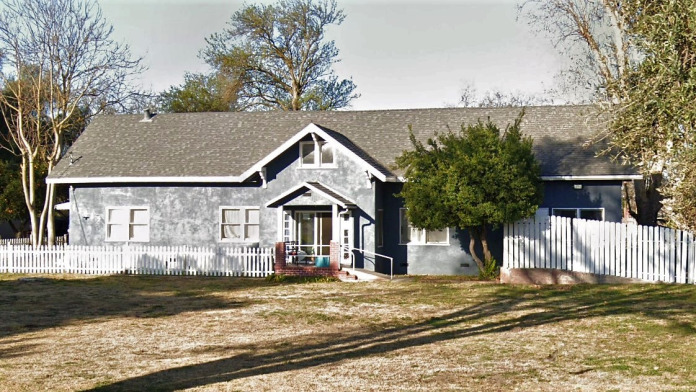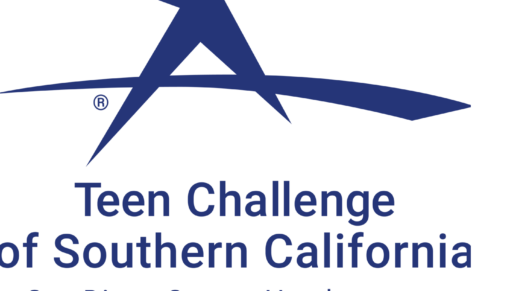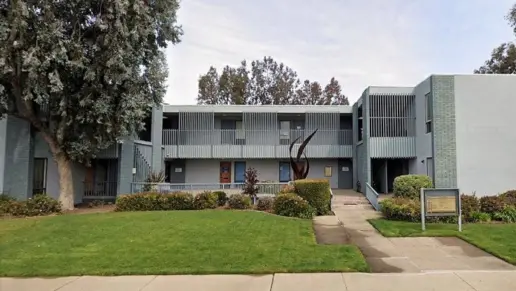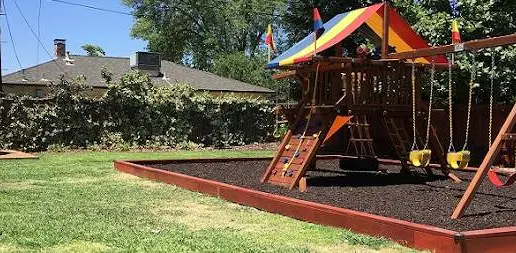I was a patient at Three Rivers Indian Lodge. I am now a contributing member of society and have multiple years of sobriety for which I directly credit both the program and staff at the facility. During my stay, I felt like I was in a safe environment and that those who wo ...
About Native Directions
Native Directions - Three Rivers Indian Lodge is an alcohol and drug rehabilitation center in Manteca, California. They offer residential addiction treatment and sober living housing for the Native American community. This program is CARF-accredited for traditional and urban American Indian substance addiction recovery. The residential program is a 180-day program involving 90 days of treatment and another 90 days of aftercare services.
Treatment is provided in their safe, structured and supportive residential community. Their therapeutic model incorporates holistic components that heal the mind, body and spirit. The program serves individuals over 18 willing to live in a sober environment and actively participate in all therapeutic activities. Most of these activities are culturally relevant to American Indians. For instance, walking the Red Road is a culturally recognized recovery path to empowerment and balance.
The 90-day treatment involves primarily individual and group sessions. These cut across multiple recovery aspects like anger management, PTSD and family challenges as well as addiction prevention and education sessions. Talking circle, domestic violence, as well as physical exercise and nutrition sessions are available. You’ll also participate in 12 Step programs like AA and NA. In addition, you’ll engage in various cultural activities like the Red Road and White Bison program.
The 90-day aftercare is geared towards ensuring that you continue to maintain the recovery gains from the 90 days of treatment. You’re required to remain clean, attend all mandatory meetings and fulfill your personalized aftercare plans, while complying with the program rules.
Emphasis is on goal realization, personal responsibility and accountability. Upon completing the 90-day aftercare program, you can apply for sober living housing to continue your recovery. This program offers you more time in recovery to focus on life changes. Activities include weekly meetings with counselors, mandatory recovery groups and an overall action plan for building a balanced life. Cultural beliefs and traditions are used in your continued quest for sobriety.
Comments from past clients reflect an overwhelmingly positive experience and impressive therapeutic results. One client said, “The best place to find yourself.”
 Payment Options
Payment Options
Private insurance
Self-pay options
Sliding scale payment assistance
Military insurance
Military Insurance
 Levels of Care
Levels of Care
 Outpatient
Outpatient
Outpatient Programs (OP) are for those seeking mental rehab or drug rehab, but who also stay at home every night. The main difference between outpatient treatment (OP) and intensive outpatient treatment (IOP) lies in the amount of hours the patient spends at the facility. Most of the time an outpatient program is designed for someone who has completed an inpatient stay and is looking to continue their growth in recovery. Outpatient is not meant to be the starting point, it is commonly referred to as aftercare.
 Intensive Outpatient
Intensive Outpatient
Intensive Outpatient Programs (IOP) are for those who want or need a very structured treatment program but who also wish to live at home and continue with certain responsibilities (such as work or school). IOP substance abuse treatment programs vary in duration and intensity, and certain outpatient rehab centers will offer individualized treatment programs.
 Inpatient
Inpatient
The treatment services are presently available for American Indian individuals in a 90-day community alcoholism treatment center located in Manteca, California. Alcoholism has become a generational health risk for Native Americans. Recovery requires life changes. Through individualized treatment, our clients can achieve sobriety. Their program consists of holistic components designed for mind, body and spirit.
 Sober Living Homes
Sober Living Homes
Three Rivers Indian Lodge has created a third phase to the treatment services. A house uniquely American Indian where the individual is required to continue the recovery process where they will be given more time in recovery to focus more consistently on life changes. This program and environment is culturally relevant to American Indians where walking the Red Road is a path to empowerment, and balance. Where cultural beliefs and traditions are utilized in their continued quest for sobriety.
 Aftercare Support
Aftercare Support
Completing a drug or alcohol rehab program shouldn’t spell the end of substance abuse treatment. Aftercare involves making a sustainable plan for recovery, including ongoing support. This can include sober living arrangements like halfway houses, career counseling, and setting a patient up with community programs like Alcoholics Anonymous (AA) or Narcotics Anonymous (NA).
 Partial Hospitalization Program
Partial Hospitalization Program
Commonly known as "day treatment," a partial hospitalization program (PHP) is an intensive form of outpatient treatment where clients meet during the day and return home in the evening. PHP treatment doesn't require 24-hour care and often serves as an alternative to inpatient hospitalization or a step-down after a residential program. With PHP treatment, you can receive daily support for 6 to 8 hours which includes evidence-based therapies and medication management. The cost of PHP treatment typically varies but averages 90 days.
 12-Step
12-Step
Participants engaged in 12 step programs receive intensive peer coaching (sponsorship) and community support. Spiritual development as a means of achieving psychological and emotional healing and growth is the cornerstone of 12 step recovery, but religious affiliations are not required. Meetings are free, anonymous, and open to the public, though specialized formats are available, including groups for seniors, teens, and family members. Evening, night, and day meetings are conducted year-round in most communities.
 Programs
Programs
 Adult program
Adult program
 Hearing impaired program
Hearing impaired program
 HIV/AIDS program
HIV/AIDS program
 LGBTQ program
LGBTQ program
 Military program
Military program
 Program for men
Program for men
 Program for women
Program for women
 Young adult program
Young adult program
 Settings & Amenities
Settings & Amenities
-
Private setting
-
Private transportation
 Insurance
Insurance
Our Policy: Native Directions works with several private insurance providers and also accepts private payments when possible, please contact us to verify your specific insurance provider.
 Treatment
Treatment
 Alcoholism
Alcoholism
The goal of treatment for alcoholism is abstinence. Those with poor social support, poor motivation, or psychiatric disorders tend to relapse within a few years of treatment. For these people, success is measured by longer periods of abstinence, reduced use of alcohol, better health, and improved social functioning. Recovery and Maintenance are usually based on 12 step programs and AA meetings.
 Drug Addiction
Drug Addiction
Drug rehab in California teaches participants constructive ways to stay clean and sober. Treatment revolves around helping individuals stop using the substance they are addicted to and learn healthy habits to avoid relapse.
 Dual Diagnosis
Dual Diagnosis
Many of those suffering from addiction also suffer from mental or emotional illnesses like schizophrenia, bipolar disorder, depression, or anxiety disorders. Rehab and other substance abuse facilities treating those with a dual diagnosis or co-occurring disorder administer psychiatric treatment to address the person's mental health issue in addition to drug and alcohol rehabilitation.
 Mental Health and Substance Abuse
Mental Health and Substance Abuse
A combined mental health and substance abuse rehab has the staff and resources available to handle individuals with both mental health and substance abuse issues. It can be challenging to determine where a specific symptom stems from (a mental health issue or an issue related to substance abuse), so mental health and substance abuse professionals are helpful in detangling symptoms and keeping treatment on track.
 Opioid Addiction
Opioid Addiction
Opioid rehabs specialize in supporting those recovering from opioid addiction. They treat those suffering from addiction to illegal opioids like heroin, as well as prescription drugs like oxycodone. These centers typically combine both physical as well as mental and emotional support to help stop addiction. Physical support often includes medical detox and subsequent medical support (including medication), and mental support includes in-depth therapy to address the underlying causes of addiction.
 Clinical Services
Clinical Services
 Group Therapy
Group Therapy
Group therapy is any therapeutic work that happens in a group (not one-on-one). There are a number of different group therapy modalities, including support groups, experiential therapy, psycho-education, and more. Group therapy involves treatment as well as processing interaction between group members.
 Individual Therapy
Individual Therapy
In individual therapy, a patient meets one-on-one with a trained psychologist or counselor. Therapy is a pivotal part of effective substance abuse treatment, as it often covers root causes of addiction, including challenges faced by the patient in their social, family, and work/school life.
 Trauma Therapy
Trauma Therapy
Trauma therapy addresses traumatic incidents from a client's past that are likely affecting their present-day experience. Trauma is often one of the primary triggers and potential causes of addiction, and can stem from child sexual abuse, domestic violence, having a parent with a mental illness, losing one or both parents at a young age, teenage or adult sexual assault, or any number of other factors. The purpose of trauma therapy is to allow a patient to process trauma and move through and past it, with the help of trained and compassionate mental health professionals.
 Cognitive Behavioral Therapy
Cognitive Behavioral Therapy
Cognitive behavioral therapy in California is a method that therapists often use for the effective treatment of substance use disorders. It is based on the principle that substance abuse stems from unhelpful ways of thinking and patterns of behavior, which can be changed by helping the individual learn better ways of coping.
 Motivational interviewing
Motivational interviewing
 Dialectical Behavior Therapy
Dialectical Behavior Therapy
While participating in dialectical behavior therapy in California, you'll focus on four key areas of skill development: mindfulness, interpersonal effectiveness, emotion regulation, and distress tolerance. Treatment includes weekly individual and group sessions.
Famliy Therapy
 Individual Therapy
Individual Therapy
In individual therapy, a patient meets one-on-one with a trained psychologist or counselor. Therapy is a pivotal part of effective substance abuse treatment, as it often covers root causes of addiction, including challenges faced by the patient in their social, family, and work/school life.
 Accreditations
Accreditations

CARF
The Commission on Accreditation of Rehabilitation Facilities (CARF) is a non-profit organization that specifically accredits rehab organizations. Founded in 1966, CARF's, mission is to help service providers like rehab facilities maintain high standards of care.
CARF Accreditation: Yes

Joint Commission
The Joint Commission, formerly known as JCAHO, is a nonprofit organization that accredits rehab organizations and programs. Founded in 1951, the Joint Commision's mission is to improve the quality of patient care and demonstrating the quality of patient care.
Joint Commission Accreditation: Yes








